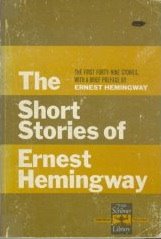 I love short novels. If they suck, you only wasted a couple of hours of your life (and usually they don't suck nearly as much as movies or TV, so it's still time better spent in my opinion), and if they're good, they're really good.
I love short novels. If they suck, you only wasted a couple of hours of your life (and usually they don't suck nearly as much as movies or TV, so it's still time better spent in my opinion), and if they're good, they're really good.The Invention of Morel was great, fantastic, wonderful. And at 100 pages, it has to be one of the more enjoyable books this year, because I know, with a few hours time, I'll be able to enjoy it over and over again. It's short but layered in a way that every reading, I can tell, will provide new insight into the story.
I'd been meaning to read this book for quite some time, as well as some Jorge Luis Borjes, who comes highly recommended from a couple of blogs that I read, and so when I saw this at the book store, I had to pick it up, along with a couple by Borges that I'm excited about.
Anyways, Casares and Borjes were really good friends in their time, and since they are considered masters of fiction (I've heard nothing but good things about both of them) I had high expectations. They were met.
The Invention of Morel is about a man enjoying his isolation on a remote island until some people show up and force him into hiding (he's a criminal in hiding on the island, and the only human their until the visitors come). He's upset at first until he sees a woman that he falls in love with. What follows is an imaginative story about love, eternity, and complete mystery.
I don't want to give away any of the plot because the story itself is quite beautiful. The characters and the island are, in the best sense, simple. Since everything is simple, it's complicated, get it? And so The Invention of Morel becomes more than just a love story, more than just a mystery, more than simple adventure. It becomes legend, myth, and somehow it's more real than any reality I know, because the themes and ideas in this short novel are ethereal, they're true on another plane, a plane we rarely get a glimpse into when we read or write or watch or hear stories.
It's what I'm always searching for, at least, in some form or fashion. And when I find it I like it.
I like book covers too, and this one was cool.


